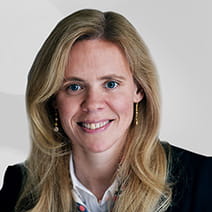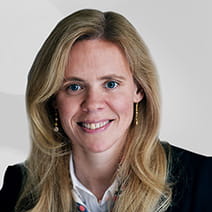- There is a lot of competition for space in our concentrated portfolios; we refresh them to ensure the very best ideas from the Cashflow Champions Watchlist are represented in the Funds.
- If a stock’s cash flow shows signs of deterioration, we will review its merits – even if it’s a long-term success story for the Funds.
- ASML and Novo Nordisk are top contributors that we’ve recently taken the decision to sell.
Competition for space in portfolios
As we apply the Cashflow Solution process to distil down a European investable universe of well over 1,000 companies to concentrated portfolios of 30 to 50 holdings, there is always a high level of competition for space.
We look to ensure the funds are not only populated with stocks from our Cashflow Champions Watchlist – those ranking in the top 20% of the market across our two core cash flow ratios – but that these holdings are optimised to reflect the signals the investment process is giving us in terms of valuations and investor and corporate behaviour.
When we designed our investment process, we ensured it was dynamic and flexible enough to adjust to market conditions, but also very disciplined and rules based. This is because we wanted to take emotion and human bias out of investing as far as possible, ensuring that portfolios are run in a very consistent, dispassionate and repeatable manner.
Choosing the right time to sell top performers
One key benefit of this approach is that it helps us time our exit from tried-and-trusted positive performers and reduce any behavioural bias to hold these successful positions for too long.
Our investment process really relies on quantitative financial evidence, including detailed analysis of the cashflow statement and balance sheet. Any deterioration in cash flow fundamentals is potential cause to trim or sell a position, so we monitor this data very closely.
While a stock could still rank within our Cashflow Champions Watchlist of the top 20% stocks in Europe, it may not remain one of our 30 to 50 best selections if market conditions have changed or if that stock’s cash flow has weakened slightly.
ASML – saying goodbye to a portfolio stalwart
For example, we held Dutch lithography specialist ASML for many years. Its technology helps the semiconductor industry to mass produce silicon chips – demand for which has ballooned as a result of the artificial intelligence (AI) investment boom in the last two years.
ASML was consistently a Cashflow Champion with good quality growth characteristics. It generated a lot of cash from its asset base, enjoyed strong business momentum, self-funded its own growth and returned lots of cash to shareholders. This attractive set of characteristics translated to very strong share price performance.
While the AI capital investment theme is stronger than ever currently, we actually sold the position in ASML in the summer of last year.
We still like the business, which retains a lot of quality growth hallmarks, but we noticed some gradual deterioration in its cash flow scores.
In order to meet customer demand resulting from the AI theme, for example, ASML has had to invest very significantly. This has led to a big pickup in capital expenditure and deterioration in working capital components. At the same time, the stock’s valuation was very full, leaving us an ultimately straight-forward decision to remove it from portfolios and make room to replace it with another of our best ideas.
This decision proved very well timed as the shares have gone on to lose ground since we sold the position, significantly underperforming the European market.
Novo Nordisk – rapid growth puts cash flow under mild strain
Novo Nordisk is another long-term holding which has served us very well over the years, but which we have decided to sell in recognition of the shifting cash flow signals feeding out of our investment process.
As with ASML, Novo Nordisk has enjoyed very good business momentum and the ability to self-fund growth from its cash flow. While it has recently been experiencing a growth spurt driven by rapid take up of anti-obesity treatments like Wegovy, Novo Nordisk for many years prior to this expanded very solidly through its market-leading position in diabetes treatments like insulin. The semaglutide injection marketed as Wegovy was in fact originally marketed by Novo Nordisk as a Type 2 diabetes treatment (Ozempic) before the weight-loss potential was explored.
This high growth in recent years has enabled Novo Nordisk to return cash to shareholders via a rising dividend and share buybacks.
But we think its cash flow profile is now showing some initial signs of mild stress.
It has been at the forefront of research & development in the European pharmaceuticals sector, which on one hand has been key to its long-term success. But on the other, when you have successful drug trials, you then have to meet demand by investing in supply. This has meant quite significant growth in capital expenditures; for example, it has had to invest in production facilities to fulfil demand for its new range of weight loss drugs.
It can take a number of years to reap the rewards of these upfront capital investments. As investors with a robust cash flow-based investment process, we need to listen to what this process is telling us; in this instance, the modest drain on cash resources and working capital deterioration was enough for us to begin trimming our position in the second half of 2024, before completing an exit last month.
We do not shy away from taking large active positions relative to benchmarks
ASML and Novo Nordisk are respectively the largest and fourth biggest stocks in the MSCI Europe Index, so their absence from our portfolios contributes significant active share – a feature we are very comfortable with and is a common aspect of our high-conviction, concentrated portfolios, in which positions are equal weighted at initiation rather than benchmarked arbitrarily to index weights.
The cash from the sale of these positions has been reinvested, both across existing positions in portfolios and through the addition of new stocks that have been selected from our Cashflow Champions watchlist.
New positions include Spotify and Belimo, both of which are experiencing strong momentum in their respective business areas, a characteristic which we continue to emphasise in portfolios in response to the signals feeding through from our investment process concerning the market backdrop and the investment styles which are likely to perform best.
Spotify, the Swedish-headquartered music streaming business, recently reported quarterly results which illustrate how strong top-line growth is dropping down to excellent cash generation. In Q4 2024, the company added 35 million net monthly active users (MAU) – 10 million more than expected – taking its total up by 12% year-on-year to 675 million. This fed through to 16% revenue growth to € 4.2 billion. Importantly – and in contrast to Novo Nordisk and ASML’s current stage of expansion – this isn’t triggering incremental capital expenditure or working capital accrual to pursue future growth. Spotify has a capital-light operating model and generated € 877 million in free cash flow in the last quarter. This led to a high cash return on assets score that lifted the stock onto the Cashflow Champions watchlist.
Swiss-based Belimo is benefitting from secular growth in demand for its equipment, such as actuators for heating, ventilation and air-conditioning units, due to trends including climate change, urbanisation, and greater digitalisation in buildings. While its capital expenditure investment in future growth is higher, it has been able to self-fund this investment while still returning cash to shareholders; it is paying out around 80% of earnings as dividends and grew its annual dividend by 12% last year. The company sits on the Cashflow Champions watchlist due to high free cash flow across both 1 year and 5 year time horizons and a recurring high cash return on assets score.As the year progresses, we will continue to filter out macroeconomic and geopolitical noise to focus on in-depth cash flow analysis; as the data evolves, so too will our portfolios. Only Cashflow Champions we think are best suited to current market conditions will be included, with even the best long-term performers considered for removal if their cash flow profile changes.
KEY RISKS
Past performance does not predict future returns. You may get back less than you originally invested.
We recommend this fund is held long term (minimum period of 5 years). We recommend that you hold this fund as part of a diversified portfolio of investments.
The Funds managed by the Cashflow Solution team:
- May hold overseas investments that may carry a higher currency risk. They are valued by reference to their local currency which may move up or down when compared to the currency of a Fund.
- May have a concentrated portfolio, i.e. hold a limited number of investments (35 or fewer) or have significant sector or factor exposures. If one of these investments or sectors / factors fall in value this can have a greater impact on the Fund's value than if it held a larger number of investments across a more diversified portfolio.
- May, under certain circumstances, invest in derivatives, but it is not intended that their use will materially affect volatility. Derivatives are used to protect against currencies, credit and interest rate moves or for investment purposes. There is a risk that losses could be made on derivative positions or that the counterparties could fail to complete on transactions. The use of derivatives may create leverage or gearing resulting in potentially greater volatility or fluctuations in the net asset value of the Fund. A relatively small movement in the value of a derivative's underlying investment may have a larger impact, positive or negative, on the value of a fund than if the underlying investment was held instead. The use of derivative contracts may help us to control Fund volatility in both up and down markets by hedging against the general market.
- The use of derivative instruments that may result in higher cash levels. Cash may be deposited with several credit counterparties (e.g. international banks) or in short-dated bonds. A credit risk arises should one or more of these counterparties be unable to return the deposited cash.
- May encounter liquidity constraints from time to time. The spread between the price you buy and sell shares will reflect the less liquid nature of the underlying holdings.
- Outside of normal conditions, may hold higher levels of cash which may be deposited with several credit counterparties (e.g. International banks). A credit risk arises should one or more of these counterparties be unable to return the deposited cash.
- May target an absolute return. There is no guarantee that an absolute return will be generated over the time period stated in the fund objective or any other time period.
The risks detailed above are reflective of the full range of Funds managed by the Cashflow Solution team and not all of the risks listed are applicable to each individual Fund. For the risks associated with an individual Fund, please refer to its Key Investor Information Document (KIID)/PRIIP KID.
The issue of units/shares in Liontrust Funds may be subject to an initial charge, which will have an impact on the realisable value of the investment, particularly in the short term. Investments should always be considered as long term.
DISCLAIMER
This material is issued by Liontrust Investment Partners LLP (2 Savoy Court, London WC2R 0EZ), authorised and regulated in the UK by the Financial Conduct Authority (FRN 518552) to undertake regulated investment business.
It should not be construed as advice for investment in any product or security mentioned, an offer to buy or sell units/shares of Funds mentioned, or a solicitation to purchase securities in any company or investment product. Examples of stocks are provided for general information only to demonstrate our investment philosophy. The investment being promoted is for units in a fund, not directly in the underlying assets.
This information and analysis is believed to be accurate at the time of publication, but is subject to change without notice. Whilst care has been taken in compiling the content, no representation or warranty is given, whether express or implied, by Liontrust as to its accuracy or completeness, including for external sources (which may have been used) which have not been verified.
This is a marketing communication. Before making an investment, you should read the relevant Prospectus and the Key Investor Information Document (KIID) and/or PRIIP/KID, which provide full product details including investment charges and risks. These documents can be obtained, free of charge, from www.liontrust.com or direct from Liontrust. If you are not a professional investor please consult a regulated financial adviser regarding the suitability of such an investment for you and your personal circumstances.














